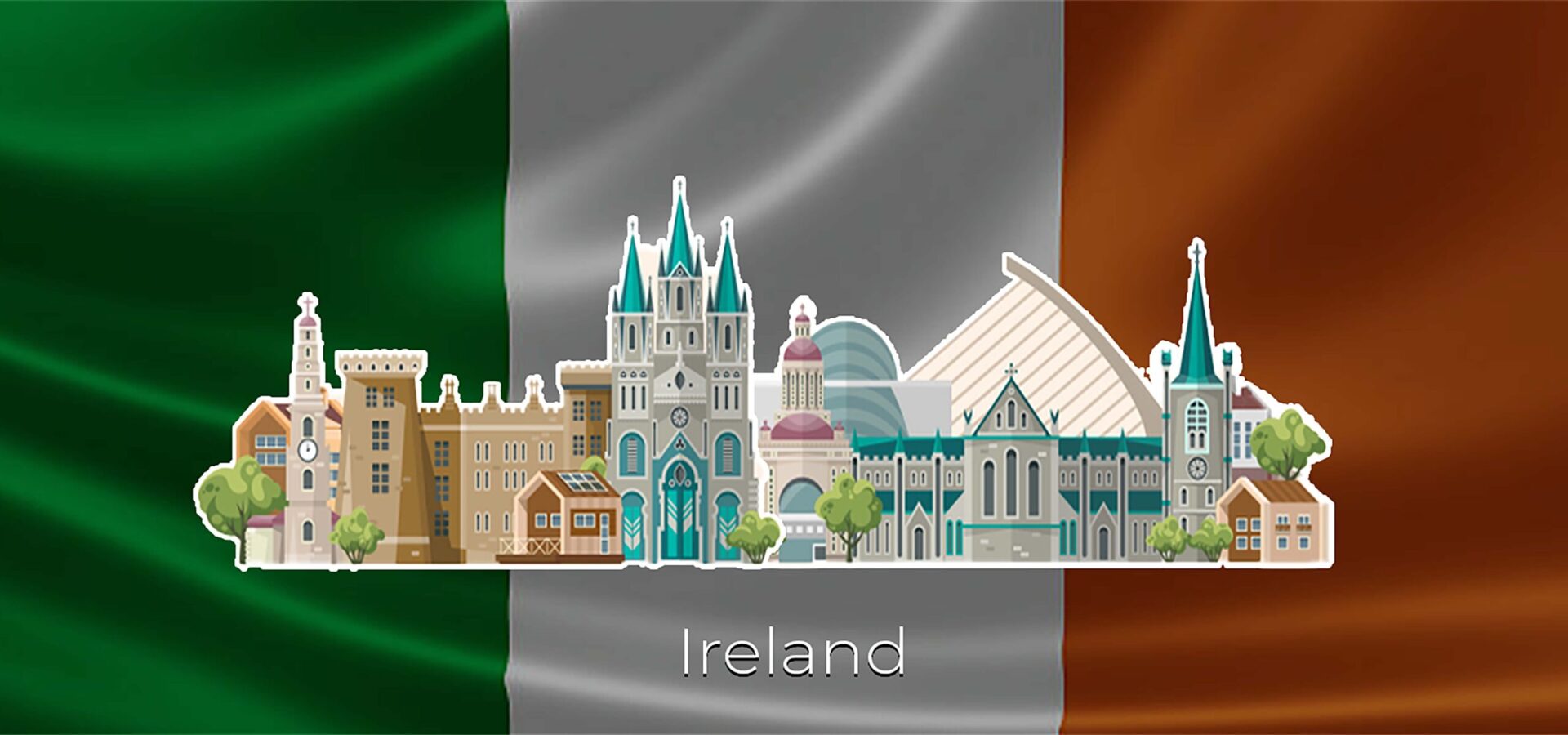
Study in Ireland
| Rank | Universities |
| 1 | Trinity College Dublin (TCD) |
| 2 | University College Dublin (UCD) |
| 3 | National University of Ireland, Galway (NUIG) |
| 4 | University College Cork (UCC) |
| 5 | Dublin City University (DCU) |
| 6 | Maynooth University |
| 7 | Technological University of Dublin |
| 8 | University of Limerick (UL) |
- Dublin
- Cork
- Galway
- Maynooth
- Limerick
- Waterford
If you are a student from a visa-required nation, you will likely need to apply for a D Type Study Visa. Most students must pay a visa cost of €60; if they wish to obtain a multiple-entry visa, the fee climbs to €100. An Irish study visa can be applied for up to three months before your intended departure date.
The student visa process in Ireland for Type D
- Accept a university offer: before applying for a visa, you must accept and secure your place at an Irish university.
- This form of visa must be applied for online, and your application will not be processed until the immigration services receive any needed supporting evidence.
- The summary form is prepared after you submit the online portion of your visa application. It should be printed out and signed as one of your supporting documents. The form includes instructions for sending all needed papers.
- You will be instructed on which supporting documents to provide, depending on your native country.
- You will be required to provide your biometrics at a visa application facility (VAC) near you if requested.
- Receive a decision:Generally, you will be required to wait up to eight weeks for a visa determination.
- Apply for an IRP: Within 90 days of your arrival in Ireland, you must register for an Irish Residence Permit (before the end date of your landing stamp). This should be done in person at an office of registration. An IRP is available for €300.
- Visas for dependents; In general, you cannot bring your family to Ireland with you on a student visa. If you want a spouse to accompany you throughout your studies, they must apply for a visa independently; your visa status has no bearing on theirs. Your dependent children cannot accompany you to Ireland on a student visa.
Ireland student visa requirements
You must provide documentation to apply for a type D student visa. These can vary slightly based on the individual and their country of origin but might include:
- Two current passport photographs in color
- The passport must have at least 12 months of validity after you arrive in Ireland.
- Any outdated passports
- Financial documentation for your studies
- Documentation proving enrollment and fee payment to the University
- Educational background
- Biometrics
- A formal application letter
- Language certification in English
- Private medical insurance – your University may offer this.
- Visa documentation — is required for Ireland’s registration.
- If your educational documents need to be translated into English, they must be done by a translator who provides their signature, contact information, and proof that the translation is accurate.
- What to include in your application letter? Your application letter should explain why you wish to study in Ireland and your chosen subject. You must also provide information about family members in Ireland or the EU. You must acknowledge that you are aware that you cannot remain in Ireland after your visa expires.
- If your educational history lacks a clear connection to the degree program you have selected, you should explain and demonstrate your interest in the subject.
- Irish visa processing duration; the time required to obtain a visa varies based on your nationality and other variables. Typically, you will receive a response four to eight weeks after submitting your application.
- If you forget or need to resubmit documents, your application will be delayed; thus, submitting everything the first time is important.
- You can apply for your Ireland visa up to three months before your departure date.
- Employing an Irish student visa; A ‘D’ Study Visa permits students to work full-time during June, July, August, and September, as well as between December 15 and January 15. For the remainder of the year, you may work no more than 20 hours each week. In addition to restrictions on working hours, overseas students are prohibited from working as taxi drivers or independent contractors.
Quick Fact Sheet
- The capital is Dublin
- The currency used is the Euro (€)
- There is one land border with Northern Ireland which is part of the United Kingdom
- International undergraduate tuition expenses begin at €9750 ($11050) per year
- Cost of living requirements: €11829 ($13400) per year
- Irish often known as Irish Gaelic is the first official language while English the second official language is more generally spoken
- Eire is the Irish name for Ireland (pronounced AIR-uh)
- Irish authors such as Jonathan Swift James Joyce Maeve Binchy and Roddy Doyle are well-known
- Oscar Wilde George Bernard Shaw and Samuel Beckett are renowned Irish writers
- The nation with the most victories at the Eurovision Song Contest with seven victories
- Known for its whiskey and Guinness production (a dry stout beer)
- Among the traditional sports are Gaelic football and hurling
- The enormous yearly celebration of Saint Patrick’s Day (17 March) in Ireland has extended worldwide
- According to the Irish Meteorological Service it rains anywhere from 150 to 225 days a year depending on the region
Ready to Take the Next Step? Contact Us Today!
Fill out the form below and let’s start this journey together. Your dreams of international education, seamless migration, and global belonging are just a message away from becoming reality. Get in touch now and let us be your trusted partner in shaping your future.
Request a Consultation


